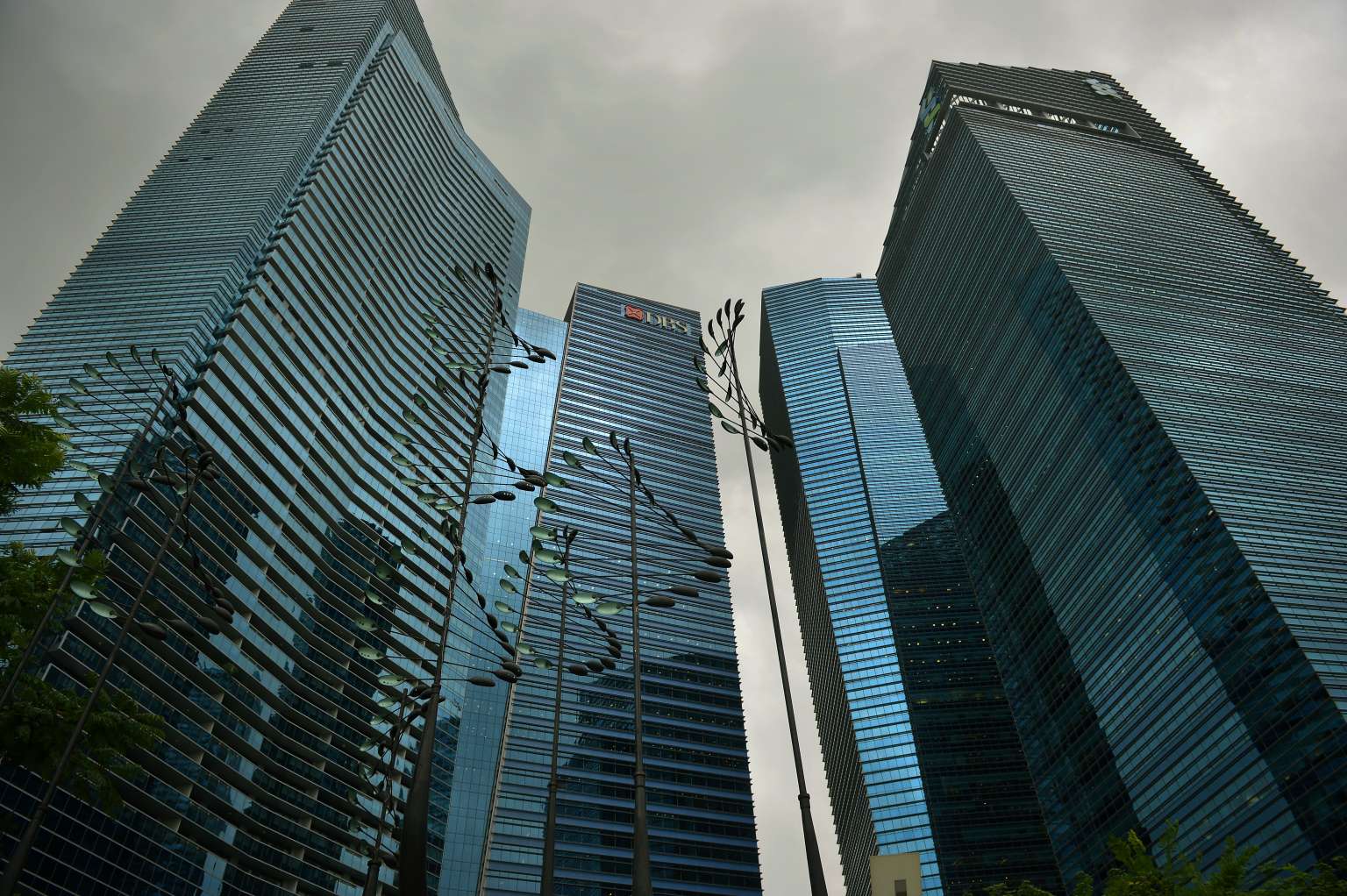Finance offices have drills, strict access rules
Sign up now: Get ST's newsletters delivered to your inbox

Marina Bay Financial Centre has participated in anti-terror drills by the Singapore Police Force.
ST FILE PHOTO
Jacqueline Woo
Follow topic:
GIVEN Singapore's openness and connectivity as a global financial centre, owners of key office buildings are only too well aware that they could become prime targets in terror attacks.
This is especially so at the Marina Bay Financial Centre (MBFC) - home to big-name corporations such as Standard Chartered Bank, American Express and DBS Bank - which has the largest share of top-tier office space here.
Together with One Raffles Quay, it has more than 100 tenants and about 30,000 staff, says Raffles Quay Asset Management (RQAM), which manages both developments. For such buildings, the high concentration of usually defenceless office workers is more than good reason to fortify the walls against assailants looking for "soft targets".
RQAM tells Insight that strict security measures are already in place.
Employees and visitors, for instance, can access the lift lobbies only by tapping a special access card on a turnstile. This will then direct them to a designated lift that is programmed to go up only to their destinations. Visitors and those making deliveries must exchange their ID cards for the access passes.
"We are committed to ensuring the safety and security of our tenants and visitors," says RQAM chief executive Warren Bishop.
Closed-circuit television cameras at strategic locations within the development, such as main entrances and exits, are also monitored round the clock. This is on top of the use of security personnel, who undertake regular patrols, says RQAM.
On the other hand, office buildings with less stringent safeguards may not even have screening processes in place, which means that visitors can enter and leave the building freely.
MBFC has also participated twice in anti-terror drills by the Singapore Police Force, with simulated attacks at its premises. One involved a staged firefight at the Marina Bay Link Mall, which is part of MBFC, as "explosions" went off at the nearby Downtown MRT station. This exercise was in October last year.
In the event the police issue a security advisory, RQAM will activate a ready "stepped-up security plan" for its buildings.
This includes deploying more security personnel in the buildings, further limiting access to the lobbies, and tightening the security screening processes for visitors and vehicles, it says.
Both the MBFC and One Raffles Quay are members of the Safety and Security Watch Group, a counter-terrorism initiative led by the police, and they receive regular updates on Singapore's security situation.
"We remain vigilant by constantly reviewing our security measures with the authorities and industry experts to ensure a safe environment for all who work in and pass through our buildings," adds Mr Bishop.
Other key corporations are not taking security here for granted, too.
Besides having security systems and procedures, OCBC Bank holds regular seminars to raise awareness among employees of possible risks in the building. This is aimed at "promoting greater vigilance" in the event of a security threat, says Mr Patrick Chew, the bank's head of operational risk management.
He adds that the bank will take steps to raise security levels where necessary, which could include installing metal detectors, X-ray scanners, or other new technologies.
The CapitaLand Group, which owns and manages several office buildings in the central business district, including Six Battery Road, says that it reviews its security procedures and systems on a regular basis to ensure they "remain relevant, adequate, and ready to respond to any situation at any time".
Across the financial industry as a whole, the Association of Banks in Singapore (ABS) runs a large-scale business continuity exercise every two to three years to test its crisis response.
The exercises involve the simulation of physical attacks by terrorists, while extending also to cyber attacks and flu pandemic outbreaks.
After the most recent run, conducted in November last year, ABS director Ong-Ang Ai Boon noted that the industry had gleaned "valuable lessons" which will go to "enhancing the resilience of Singapore's financial sector".

